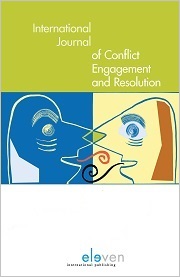|
This article reviews some of the key issues in transitional justice process and institutional design, based on my research and experience working and living in several post-conflict societies, and suggests that cultural and political variations in transitional justice design, practices, and processes are necessary to accomplish plural goals. The idea of process pluralism, derived from the more general fields of conflict resolution and ‘alternative dispute resolution’ in legal contexts, is an essential part of transitional justice, where multiple processes may occur simultaneously or in sequence over time (e.g. truth and reconciliation processes, with or without amnesty, prosecutions, lustration and/or more local legal and communitarian processes), depending on both individual and collective preferences and resources. Transitional justice is itself ‘in transition’ as iterative learning has developed from assessment of different processes in different contexts (post-military dictatorships, civil wars, and international and sub-national conflicts). This article draws on examples from Argentina’s and Chile’s emergence from post-military dictatorships to describe and analyze a plurality of processes, including more formal governmental processes, but also those formed by civil society groups at sub-national levels. This article suggests that ‘democracy development’ and legalistic ‘rule of law’ goals and institutional design may not necessarily be the only desiderata in transitional justice, where more than the ‘legal’ and ‘governmental’ is at stake for more peaceful human flourishing. To use an important concept from dispute resolution, the “forum must fit the fuss”, and there are many different kinds of ‘fusses’ to be dealt with in transitional justice, at different levels of society – more than legal and governmental but also social, cultural and reparative. |


International Journal of Conflict Engagement and Resolution
About this journalSubscribe to the email alerts for this journal here to receive notifications when a new issue is at your disposal.
| Article |
|
| Keywords | transitional justice, conflict resolution, process pluralism, cultural variation, individual and collective justice |
| Authors | Carrie Menkel-Meadow |
| AbstractAuthor's information |
| Article |
|
| Keywords | peacebuilding, phronesis, civil society, practice–theory, Northern Ireland |
| Authors | Emily Stanton PhD and Grainne Kelly |
| AbstractAuthor's information |
|
This article seeks to explore why, after significant financial investment and a history of nearly 50 years of civil society activity, there is a paucity of explicitly codified and consolidated indigenous theory that has emerged from peacebuilding practice in Northern Ireland. Methodologically, this apparent contradiction is explored, utilizing both empirical research (interviews with key peacebuilders) and the wide practitioner experience of the authors. It is argued that two complex dynamics have contributed to the subordination of local practice-based knowledge, namely, the professionalization of peace and the dominance of research over practice within academia. These two dynamics have played a mutually exacerbatory and significant role in creating barriers to constructing local peacebuilding theory. Phronesis, an Aristotelian term for practical knowledge, is explored to discover what insights it may contribute to both research, theory and practice in the field of peacebuilding, followed by examples of institutions demonstrating its value for practice–theory reflexivity. The article concludes with a call for peace research that validates and values practical knowledge. By doing so, the authors argue, new avenues for collaborative partnership between practitioners and academics can open up, which may play a constructive role in bridging practice–theory divides and, most importantly, contribute to building more effective and sustainable peacebuilding processes in Northern Ireland and in other conflict contexts. |
| Article |
|
| Keywords | Northern Ireland, intra-group negotiations, disarmament, political transition, IRA |
| Authors | Dr. Benedetta Berti and Ariel Heifetz Knobel |
| AbstractAuthor's information |
|
In exploring alternatives to armed struggle, how do non-state armed groups embark on such complex internal discussions, and how do they reframe their worldview and strategy to persuade their militants to support such transition? |
| Article |
|
| Keywords | non-violent struggle, dynamics of non-violent struggle, strategic planning in non-violent struggle, protective power of the vulva, curse of female nakedness |
| Authors | Dr. Peter Karari |
| AbstractAuthor's information |
|
Non-violent struggle is a technique by which the population can restrict and sever the sources of power of their oppressors while mobilizing their own potentials into effective power. Female nakedness is one type of non-violent action that can be mobilized to facilitate women’s emancipation from gendered-cum-patriarchal oppression, violence and marginalization. A literature review indicates that female nakedness has been used for many centuries around the world to stop wars, ward off enemies, agitate for rights, prevent pests and increase harvests. Studies show that the effectiveness of non-violent struggle requires strategic planning and understanding of the dynamics involved. This article analyses the 1992 women’s nude protest in Kenya aimed at pushing for the release of political prisoners. This study investigates three questions: (1) In what ways was the 1992 women’s nude protest in Kenya a success? (2) What were the struggle’s flaws? (3) What strategic plans and/or dynamics of non-violent struggle could have been employed to make this protest more effective? The findings of this research indicate that: (1) The nude protest was partially a success because it secured the release of all political prisoners and nurtured democratization; (2) the struggle failed to embrace some strategic planning and/or the dynamics of non-violent struggle in addition to hunger strike and female nakedness; and (3) the protest could have been more successful if it embraced particular strategic plans and/or dynamics of non-violent struggle such as negotiation, power relations, prioritization of tactics and methods of non-violent struggle, access to critical material resources and clear monitoring and evaluation strategies. |

 Issue 2
Issue 2